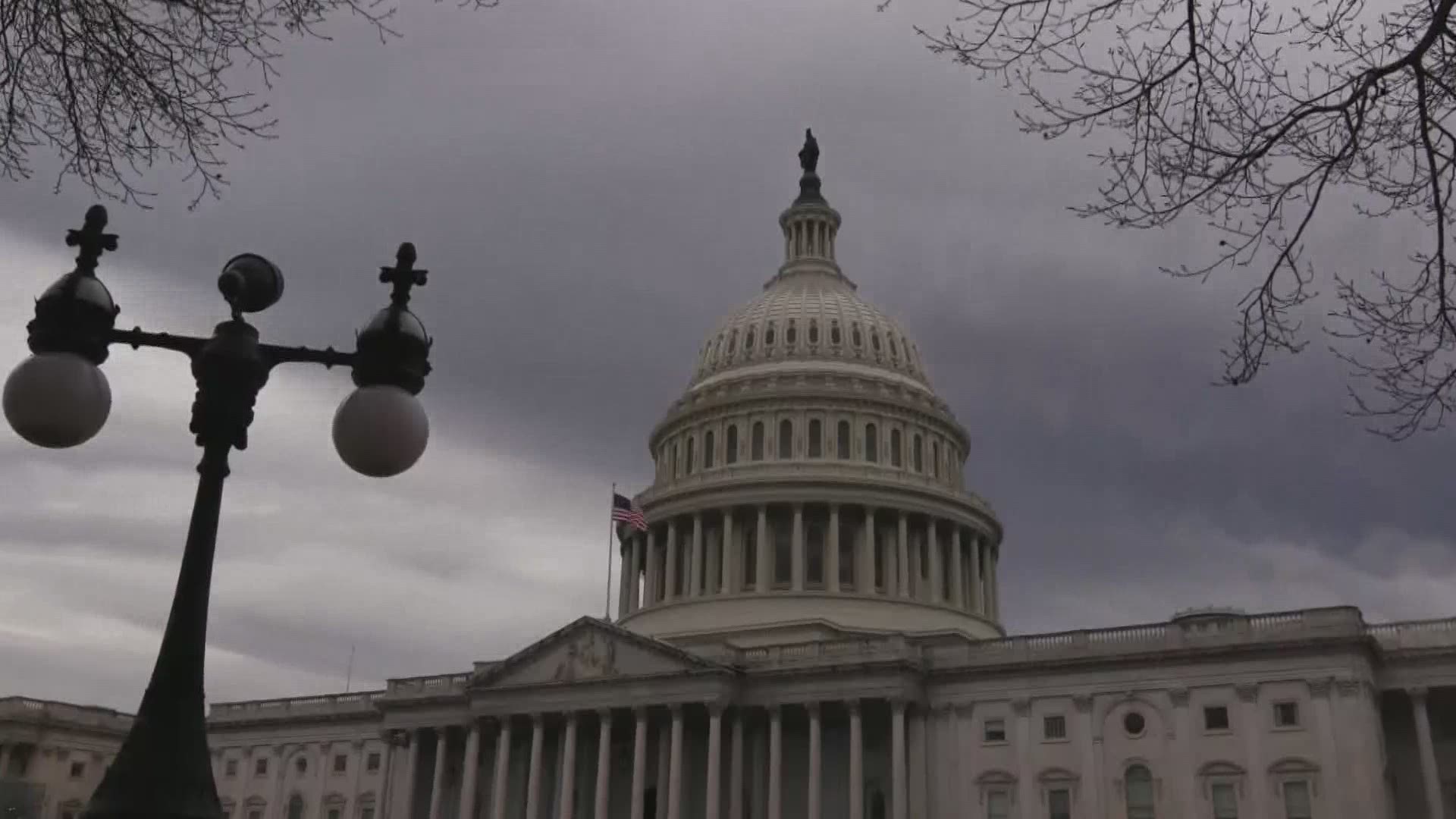WASHINGTON D.C., DC — "We were determined that we would not break for Christmas until this got done," Maine Republican Sen. Susan Collins said Monday afternoon. "While this bill doesn't have everything in it that I would like, it has an awful lot that will make a difference to hard-hit families in Maine."
A bipartisan deal on a nearly $900 billion COVID-19 emergency relief package was reached late Sunday night. The House and the Senate are prepared to vote on the bill Monday night.
Collins and Maine Independent Sen. Angus King were part of the bipartisan group of lawmakers who developed the relief package. When the package was unveiled last week, Collins said the bipartisan effort to get a relief package like this done was a "Christmas miracle."
"Our bipartisan, bicameral coalition led the way, working night and day to develop the commonsense plan and budget recommendations that jump-started these negotiations and provided the foundation for this final agreement," Collins said Sunday after the agreement was reached.
King says this bill could not have come soon enough.
"It shouldn't have taken this long," King said Sunday. "We should have been doing this in December or November, but here we are."
According to lawmakers, the stimulus package includes a $300 per week benefit for those out of work and another round of PPP loans to businesses.
"With the increasing [COVID-19] case count, there's a lot of concern out there in making sure our industries stay viable and that they're around in 2021," President of the Retail Association of Maine Curtis Picard said.
The emergency package also includes another stimulus check for eligible adults. This time, of up to $600. Those who qualify will likely be individuals earning up to $75,000.
Collins says, "It will help them pay their bills and it will help them have a happier Christmas. It will also give a boost to the economy."
The bill will also provide food assistance, a fresh round of subsidies for health care providers, help for renters facing eviction, and assistance for schools.
Deputy Commissioner of the Maine Department of Education Daniel Chuhta says, "The funding has gone a long way for schools. Much of the staffing that would have been supported by [Coronavirus Relief Fund] can now continue."
The millions of dollars coming to Maine is intended to be a first step.
King says, "It's designed to get us through the winter, it's not the whole answer."

